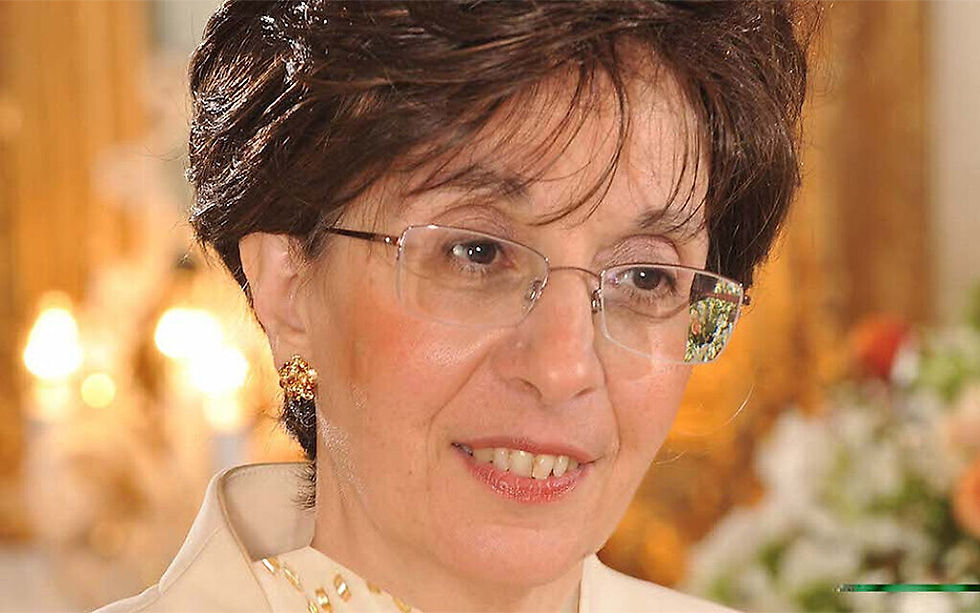Sarah Halimi's Murderer Spared Trial
- Maeve Korengold

- Apr 21, 2021
- 5 min read
Updated: Dec 23, 2024
In April of 2017, sixty-five-year-old doctor and teacher Sarah Halimi was beaten, strangled, and thrown out of the window of her own home by her neighbor for being Jewish. The circumstances surrounding her murder have contributed to conversations about the perception of those with psychosis and drug addiction, as well as France’s antisemitism.
Recently, France’s Court of Cassation’s Supreme Court of Appeals ruled that Halimi’s murderer - Kobili Traoré - could not be held criminally responsible for his actions because he was under the influence of marijuana and experiencing a psychotic episode at the time, confirming the 2019 ruling of France’s lower court. This decision was not well received by many Jewish organizations and officials; French Chief Rabbi Haïm Korsia tweeted that this act of antisemitism is “anything but madness, but a reprehensible criminal offense,” and Dr. Shimon Samuels, the Simon Wiesenthal Centre’s Director for International Relations, asserted that the court’s decision is a “devastating blow” to Halimi’s family and the French Jewish community.

Traoré will be held in psychiatric facilities until it is deemed safe for him to re-enter society, and will be banned from contacting Halimi’s loved ones and returning to the site of the murder for twenty years. He was a heavy drug user, smoking up to fifteen joints a day for thirteen years, and was experiencing a “delirious episode” at the time of the killing, according to psychiatric evaluations administered after his arrest. Although recreational drug use is not considered a mental illness under French penal codes, Halimi’s killer still escaped criminal responsibility due to his altered state of consciousness. This sets a dangerous precedence for views of French citizens living with mental illnesses as well as France’s Jewish community.
Halimi’s murder being attributed to the murderer's drug use and resulting psychosis does two things; it associates people who suffer from psychosis and drug addiction with cruel and violent acts, and it delegitimizes the antisemitic ideas prevalent in France that led to Halimi’s death.
People who live with psychosis and drug addiction are already stereotyped as destructive and unproductive members of society. When Halimi’s killer escapes responsibility for his actions due to a marijuana-induced psychotic episode, prejudice against people struggling with drug addiction and mental illness is fueled. Although they were contributing factors, Traoré's actions are ultimately the result of his hatred for Jews, not his excessive marijuana use or his resulting delirium. In a 2019 court hearing, he said that he felt “persecuted” when he saw the Torah and chandelier in Halimi’s home. “I saw her face transforming,” he stated.
Although antisemitism in France is consistently rising—with about thirty-two percent of citizens holding the belief that Jewish people are more loyal to Israel than the countries they reside in and twenty-two percent believing that Jewish people don't care what happens to anyone but their own kind in 2019, according to the Anti-Defamation League—Jews are often accused of crying antisemitism when hateful crimes such as Sarah Halimi’s murder occur. This disbelief in the very real prejudice against Jewish people comes from the idea that Jewish people hold immense amounts of political and societal control and use accusations of antisemitism for their benefit to keep their power— a belief that has been used to dismiss the plight of Jewish people for hundreds of years.
According to the New York Times, as well as calling Halimi a “dirty Jew,” her murderer yelled “God is great”, and “I killed the devil” in Arabic before throwing her off of her balcony. Many media outlets who have covered his case attach focus to his reciting of verses from the Quran, labeling him as Muslim. The attachment of radical terrorists to the Muslim religion worsens the hostility between Jewish and Muslim communities, both of which are extremely marginalized in France. Islamophobia is prevalent in France, with recent legislation that could ban girls under eighteen from wearing hijabs in public, and all women from wearing modest swimsuits known as burkinis at public beaches and pools. Headlines that focus on Halimi’s murderer’s religious affiliation contribute to the rift between Muslims and Jews: two vulnerable religious groups. They take importance away from the heinous antisemitic crime and instead appeal to widely held Islamaphobic beliefs that Muslims are radical terrorists. As Halimi’s Muslim neighbor and friend asserted when speaking to James McAuley, a journalist for The Guardian, “A Muslim would not do this.”
Since 2003, at least twelve French citizens have been killed for being Jewish, on six separate occasions. Most of the perpetrators and victims were from lower-middle-class neighborhoods, and many victims knew their murderers as neighbors, acquaintances, or friends. The perpetrators went after their victims because they thought that because they were Jews, they’d be wealthy, or because they were under the influence of “the new antisemitism.”
During her life, the woman we now know as Sarah Halimi was known as Lucie Attal. Halimi was the surname of her ex-husband, and Sarah was her Hebrew name. The shift in her name from Lucie Attal to Sarah Halimi is of mysterious cause, but symbolizes the ways that victims of hate crimes become societal symbols.
In 1939, all Jewish women living in Germany who didn’t have “typically Jewish” names were forced to take the name Sarah so that Jewish Germans could be identified easily. Their identities were taken away when they were all categorized together and stripped of their individuality. The name Sarah began to symbolize all German Jewish women, and now Sarah Halimi has become the face of demands for justice for French victims of antisemitism.

By 1940, Vichy France, under the control of Nazi collaborator Marshal Phillipe Pétain, had adopted Nazi Germany’s antisemitic policies. When implemented, Pétain’s Statut des Juifs (Statute on Jews) carried out the deportation of seventy-seven thousand Jewish people to concentration camps until they were liberated in 1944. French Jews were barred from public life, military service, and from holding free professions such as teaching, medicine, and law. An agency called the Commissariat Général aux Questions Juives (General Commissariat for Jewish Affairs) was created to seize property from Jewish people for the French state. This “Aryanization” left many Jewish families extremely poor, and over three thousand Jews died in French detention camps. In 1942, French Jews were forced to don yellow stars.
Unlike Germany, modern France has not notably taken accountability for its role in the death of many Jewish people and the destruction of their families. France’s lack of recognition of its historical treatment of Jewish people is connected to its lingering antisemitism that resulted in the death of Sarah Halimi and others.
The last name Halimi also has its own connotations. In the winter of 2006, twenty-three-year-old Jewish man Ilhan Halimi was kidnapped, tortured, and killed in Paris by a gang of French men; targeted because the perpetrators thought he’d be wealthy.
The coincidental repetition of the last name Halimi in the string of French Jews who were brutally murdered just for being Jewish symbolizes the gravity of these crimes and the way that they keep repeating without much repercussion or attention. Sarah Halimi is the latest victim of murders of French Jews, but recognition of the victims before her is important to see the depth of France’s antisemitism and the hundreds of years of prejudice and indifference that allowed them to happen.
Sarah Halimi is not the first elderly Jewish woman to be senselessly murdered in her own home, and until France’s historical antisemitism is confronted and steps are taken to disarm it, there will be more Sarah Halimis and more Ilhan Halimis.
In response to the Supreme Court of Appeal’s ruling, French President Emmanuel Macron has called for a change in the law that allowed Halimi’s killer to remain criminally irresponsible for her murder. “Deciding to take drugs and then ‘becoming mad’ should not in my eyes remove your criminal responsibility,” said Macron in an interview with Le Figaro after the final ruling. “I would like to tell the family, relatives of the victim and all fellow citizens of the Jewish faith who were awaiting this trial of my warm support and the determination of the Republic to protect them.”

_edited.png)



Comments